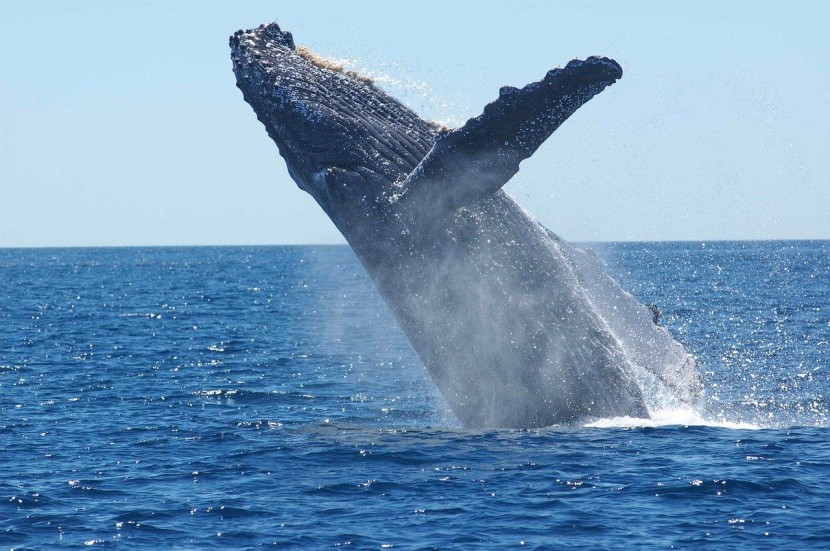
Researchers have discovered that blue whales shift from nighttime to daytime singing prior to their migration. This was done through the usage of two advanced audio recording technologies by a collaboration of Monterey Bay scientists. The blue whale is the most boisterous animal in the world.
According to William Oestreich, a Biology graduate at Stanford University's Hopkins Marine Station, "Sound is a vital mode of communication in the ocean environment, especially over long distances. Light, or any sort of visual cue, is often not as effective in the ocean as it is on land." So numerous marine organisms use sound for a variety of functions such as targeting food and communicating via echolocation, reported Phys.
Switching Up the Singing
Amid the high latitude-summer feeding season, male blue whales have a tendency to croon at night. However, momentarily before migrating south to their habitats, the whales alter the timing and sing in the day.
Wildlife experts have long been enamored by blue whales' singing. This study was recently cited in the published "Current Biology."
Californian coast blue whales would later make one of the world's greatest journeys which is a trip south towards warmer waters. Courtesy of a renewed learning of their singing, it will be a good opportunity to hear them bidding goodbye, reported The Times.
An underwater microphone placed on the Monterey Bay seafloor for the past five years has been recording the ocean's sounds including the haunting songs of blue whales.
Assessing a huge amount of data, researchers observed blue whale songs following a seasonal rhythm. Recordings from the summer months revealed their fondness for nighttime singing.
Summer
Summer is a fervent time for central Californian blue whales. The large marine mammals must eat plenty of krill every day during the daytime to gear up for their monumental migration to the warmer southerly sea. When night comes, the men blue whales serenade female blue whales.
On Whale Songs
Whale songs have been assessed for years but scientists have had restrained success in understanding their meaning.
The researchers decided to compare day and night song patterns for each month and in the divergence and convergence of two lines, no one expected the beautiful signal.
As soon as that image popped up on the screen, Will and I were both like, 'Hello, behavior,'" according to John Ryan, a biological oceanographer at MBARI and senior author of the paper, reported Stanford.
Not the First Time
This is not the mere time researchers have observed whales singing at a specific time of day. But the study appears to be the first moment of changes in the daily singing patterns over the annual feeding and mating cycle, according to Oestreich.
National Geographic indicated that there used to be an estimated 300,000 blue whales prior to their hunting in the 1990s. Blue whale hunting was prohibited in 1966.
Related Article: Killer Whales Chase Boat Off San Diego Coast (VIDEO)
© 2025 HNGN, All rights reserved. Do not reproduce without permission.








